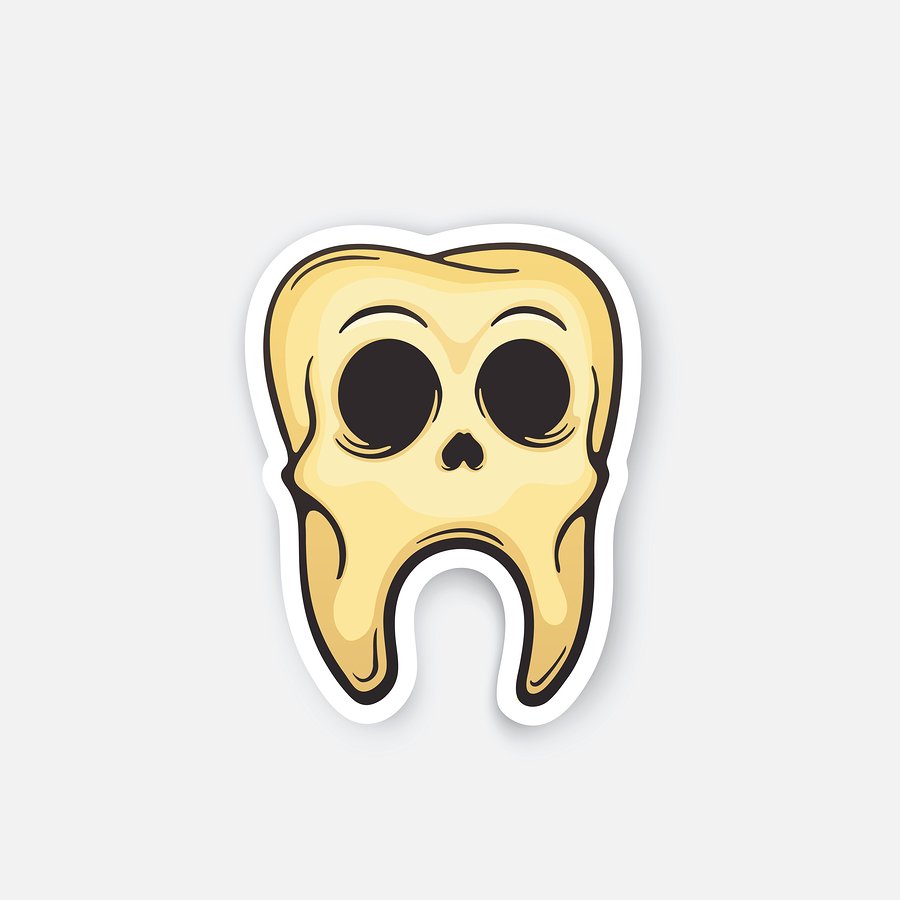Dead Tooth: Causes, Symptoms, and Treatments

Summarize with AI
As its name implies, a dead tooth is essentially no longer living. That said, it can still be a functional part of your mouth if you seek treatment in time. If you suspect that you have a dead tooth, here’s what you should know.
What is a Dead Tooth?
A healthy tooth is comprised of three layers: enamel, dentin and pulp, which is made up of nerves and blood vessels. A tooth is considered dead, when its blood supply is cut off, effectively killing the pulp within. Also referred to as a necrotic pulp, non-vital tooth or a pulpless tooth, a dead tooth will contain no living nerve. Unfortunately, it can still harbor infection, which can lead to a number of other serious dental problems. This is why you should see a dentist as soon as possible if you believe you have a dead tooth.
What Causes a Dead Tooth?
It’s not always possible to determine why a tooth loses blood supply; however, the most common culprits include:
Tooth decay: When decay penetrates into the deepest layers of a tooth, it can open the door for bacteria, which can infect the interior nerve, causing it to die. While healthy pulp will usually show an inflammatory response to bacteria, this can only go on so long before pressure builds up within the pulp. Once this happens, blood flow is often cut off and the nerve is ultimately starved of oxygen and nutrients.
Trauma: Whether it’s a fall, sports injury or blow to the face, physical trauma can cause a tooth to die. If the impact is targeted, blood vessels can burst, cutting off blood flow to a tooth’s pulp. Even if the blood flow is only partially reduced, the tooth may die over time if it isn’t getting an adequate amount of oxygen and nutrients.
In general, a tooth becomes non-vital in the following way:
- A crack or cavity starts to penetrate the tooth
- Bacteria are able to enter the pulp
- Healthy pulp tries to fight the bacteria
- Pressure, swelling and pain occur
- The tooth nerve is starved of oxygen and nutrition
- The tooth becomes necrotic as blood flow is reduced or stopped altogether
What Are the Symptoms of a Dead Tooth?
While most people associate dead teeth with having a darkened color, this isn’t always the case. In turn, it’s not always easy to recognize a dead tooth just by looking at it. More often than not, however, people will experience some telltale symptoms, including:
- Swelling of the periodontal membrane around the dead tooth
- Bad smell or taste due to bacterial infection
- Sometimes, a pimple on the side of the gums indicating an abscess
Does a Dead Tooth Hurt?
Many times, people are surprised to find that their dead teeth cause pain. After all, if the nerve is dead, it would seem reasonable to assume that pain would not be a common symptom. In reality, however, dead tooth pain doesn’t come from the nerve but originates from pressure being placed on the periodontal membrane.
Dead Tooth Pain Management
If you are experiencing pain from a dead tooth, here are a few tips to help you manage it before seeing a dentist.
- Take an over the counter pain reliever to help with pain and inflammation; ibuprofen or Advil.
- Skip the hot beverages as they can often increase inflammation.
- Stick to soft foods. Harder foods can potentially irritate the area.
How Long Does it Take for a Tooth to Die?
This can vary depending on the extent of the injury or decay. If all of the blood flow has been cut off, the tooth can die in a matter of hours. If, on the other hand, there is still some blood flow getting to the pulp, the tooth could take months or even years to die.
Root Canal Therapy
While extraction is a potential treatment for a dead tooth, it isn’t the only viable option. Many times, dentists can preserve dead teeth by administering root canal therapy. Afterword, the tooth can function normally, as long as it is still intact. In some instances, however, the tooth will be so brittle, it will require a crown, which will provide added support.
In many cases, root canal therapy is a preferred course of action because it allows patients to retain a tooth, which would have to be extracted otherwise. Many patients prefer to keep their natural teeth for aesthetic and dietary reasons. Missing teeth can also lead to serious dental issues down the road, with some people requiring implants or dentures to eat normally.
Whatever the case, it’s extremely important to seek treatment for a dead tooth, since they are so susceptible to infection. If a bacterial infection is allowed to develop, you could lose additional teeth or even jawbone. You could even develop a dangerous infection that could spread to other parts of your body.
How to Prevent a Dead Tooth
While we can’t always avoid physical trauma, we can reduce the risk of tooth decay by maintaining good dental habits. These tips can potentially help you to prevent dead tooth.
- Brush twice a day
- Floss at minimum once
- Maintain a healthy diet that includes fruits and vegetables and of course, drink plenty of water
- If you play sports, you should talk to your dentist about getting a custom mouth guard that can help prevent oral injuries
- See your dentist for your regularly scheduled appointments
.png)

